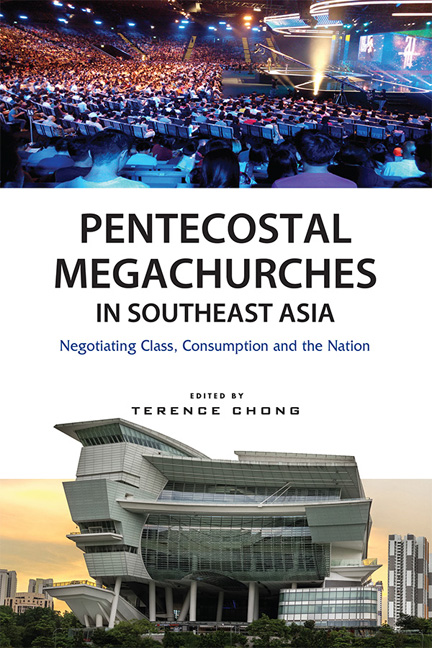Book contents
9 - Speaking the Heart of Zion in the Language of Canaan: City Harvest and the Cultural Mandate in Singapore
from Singapore
Published online by Cambridge University Press: 04 July 2018
Summary
Introduction
Senior Pastor Lawrence Khong, head of Faith Community Baptist Church (FCBC), one of the biggest charismatic megachurches in Singapore, is a tad nervous. The 2014 Shanghai tour of his magic show VISION, part David Copperfield and part Cirque du Soleil complete with dancing girls and disappearing sports cars, is not selling as well as it should. Khong urges his congregation back home in Singapore, through a video clip on Facebook, to pray for the show's success. Together with his daughter Priscilla, Khong also runs Gateway Entertainment, the production company that funds and creates his magic shows. Meanwhile, Sun Ho, wife of Kong Hee, the senior pastor of City Harvest Church (CHC), can be found singing about “killing Bill” — her philandering partner — in a music video produced by American artist Wyclef Jean. In another dance-friendly music video replete with cultural misalignments, Ho is scantily dressed like a geisha but singing about “China Wine”. “The creation of a persona is part and parcel of the music and movie industry”, the church takes pains to explain. “Some artists switch personas from film to film or from album to album. Ho herself went from the “geisha” persona in “China Wine” to a new one in her latest music video “Fancy Free”.
The intertwining of Christianity and capitalism is, of course, not new. Weber traced the origins of the Protestant work ethic to the importance that Calvinists placed on worldly success, as they grappled with the thorny issue of predestination. Miller and Yamamori highlighted the “practical” side of the “Prosperity Gospels”, in how Christian entrepreneurs are encouraged and groomed to give back to the church. Others like Ellingson and Sargeant, observing concertlike sermons and marketing strategies, noted how Christianity has been remarkably adaptable to capitalist and consumerist impulses. This adaptive character should come as no surprise because Christianity, particularly its Pentecostal strand, has long demonstrated the dual ability to be transnational in crossing cultural boundaries while indigenizing itself with local traditions and practices. This has ensured the retention of a broad global identity coupled with deep local relevance, and has contributed to the relative speed and ease with which Pentecostalism has spread across the globe, particularly Asia.
- Type
- Chapter
- Information
- Pentecostal Megachurches in Southeast AsiaNegotiating Class, Consumption and the Nation, pp. 207 - 234Publisher: ISEAS–Yusof Ishak InstitutePrint publication year: 2018

